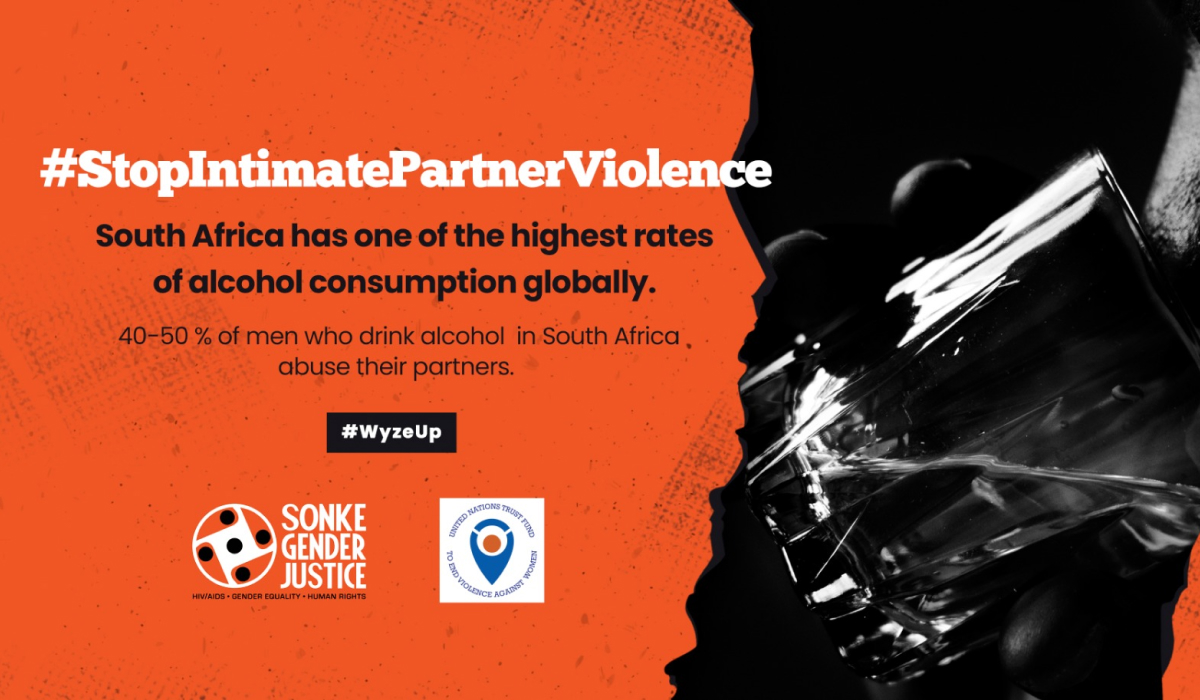Chris Maseko, Training and Development Practitioner
I am a Training and Development Practitioner who has encountered hundreds of women who have been abused by their alcoholic partners and would like to see a collective and societal approach to tackle gender based violence.
In my current role, I facilitate educational sessions on gender based violence, specifically on intimate partner violence, through workshops, information sessions, presentations, and radio interviews. I have engaged many women who share stories of experiencing violence from their partners, especially when drunk. My role is to raise awareness on the prevalence of GBV and to educate survivors of where to get help.
However, I see many gaps that require a collective effort for us to win the war against gender based violence. Many of the women that I engage with feel that alcohol contributes to the violence they experience in their homes.
With the recent COVID-19 pandemic leading to job losses, more people have been plunged into poverty leading to spiraled frustration of the heads of households and abusers. Their loss of income together with forced lockdowns restrictions instituted by the South African meant they were spending more time at home with families and the close and constant proximity increased the incidents of violence— at an alarming rate.
However, currently most GBV programmes are targeted at victims and survivors. We need programmes that are specifically designed for men especially as South Africa has one of the highest rates of alcohol consumption globally and research has shown that 40-50% of men who drink abuse their partners. In addition, programmes that encourage responsible drinking will have a lasting impact on the health andwellbeing of men and that of women and children, some of whom are taking medication for anxiety and depression that has resulted from abuse from their partners.
Perpetrators and victims live in communities, where alcohol is accepted or normalised as a form of entertainment. Women I have spoken to say it is difficult to challenge their partners to drink responsibly because of this, which is why I believe communities must be challenged and empowered to promote responsible drinking, as well as healthy, respectful, and nonviolent relationships to reduce the occurrence of IPV.
So, how do we ensure collective community responsibility in the fight against GBV?
The education of communities is a role for people like me and organisations such as Sonke Gender Justice. Given the prevalence of GBV, anti violence movements must therefore not only focus on supporting the survivors but also on prevention through educating and empowering communities to join the fight by challenging harmful norms and behaviors which perpetuate GBV.
Unfortunately, communities can also shame, victim-blame, or prescribe harmful gender roles. Empowered communities can be a powerful tool for fighting gender based violence as they can collectively shape new gender norms and challenge men to do better by women and children. Communities can also be a safe haven for survivors by providing shelter and support services. Particularly, they can contribute to responsible drinking by calling for better regulation of alcohol. An informed community which understands its rights can challenge the awarding of liquor licences and enable alcohol harm reduction.
This is why I will continue my role to facilitate educational sessions on gender based violence. The need is huge and the job is not yet done.
You can read other blogs in the series here
Watch the video on the correlation between alcohol misuse and intimate partner violence here


